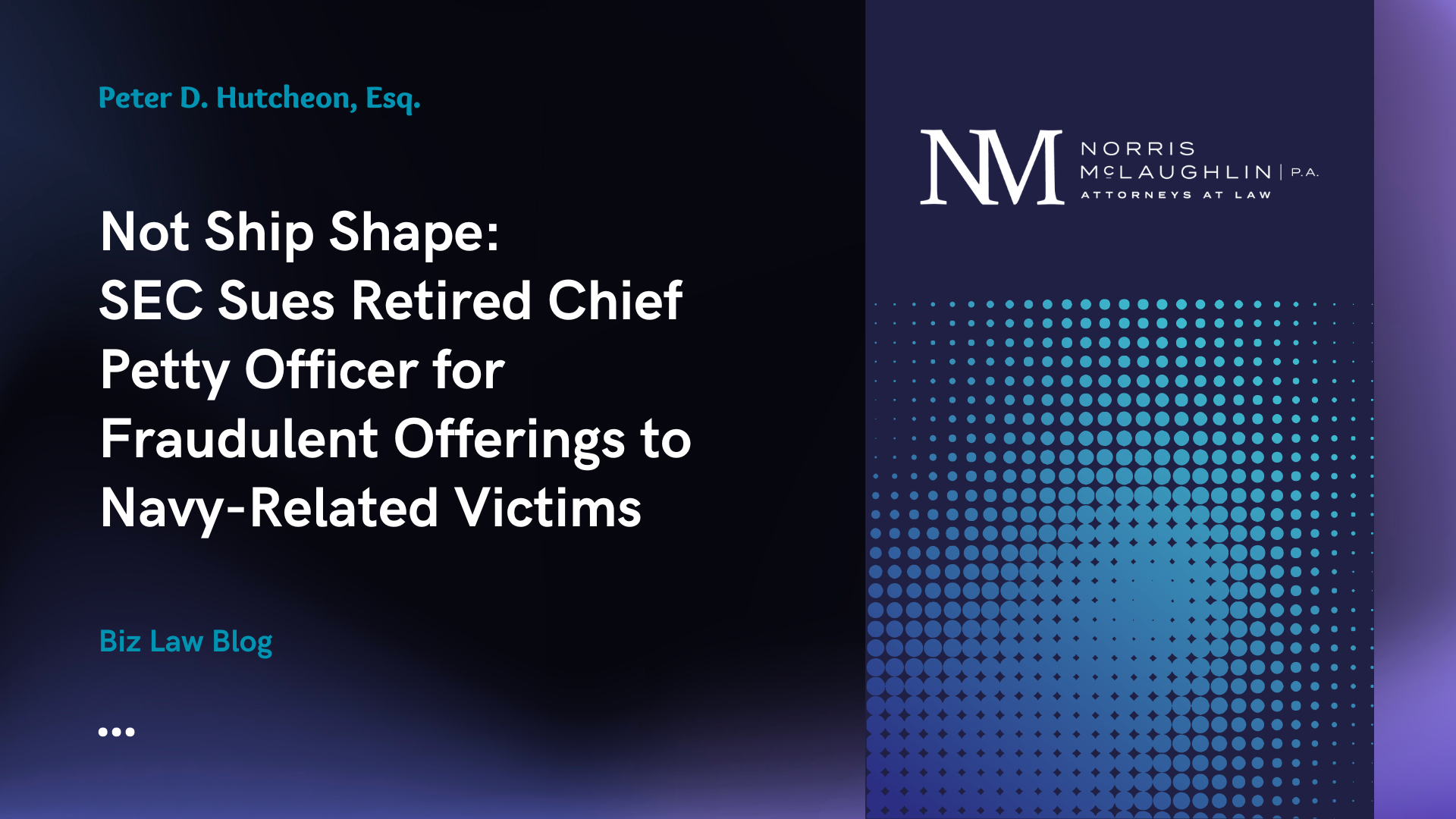A Cautionary Tale of Over-Designating Documents: New Guidance From the District of New Jersey

An important consideration during discovery in any complex litigation is ensuring documents designated as “confidential” under a governing Discovery Confidentiality Order actually meet governing law and the Order’s definition of “confidential.” Last week, the District of New Jersey issued a decision that serves to remind both counsel and litigants that a party cannot use a Discovery Confidentiality Order to shield routine business communications, even if they are harmful, uncomfortable, or embarrassing.
New Guidance From the District of New Jersey
In In re: Valsartan N-Nitrosodimethylamine (NDMA), Losartan and Irbesartan Products Liability Litigation, (D.N.J. Jan. 8, 2021), the plaintiffs challenged five confidentiality designations of specific email chains produced by a pharmaceutical company-defendant in complex, multi-district litigation on two grounds. First, plaintiffs challenged the defendant’s designation of the documents, claiming that defendant failed to follow the Confidentiality and Protective Order’s dispute resolution mechanism to address the issue.
Second, plaintiffs argued that the five documents—internal and external email communications—did not constitute “confidential information” under the Order because they were not “proprietary, trade secret and/or highly sensitive commercial information.” Defendant argued that the documents were both non-public and contained highly sensitive business information about its investigatory procedures and processes that would cause it competitive harm.
The New Jersey District Court agreed with the plaintiffs’ argument both substantively and procedurally. The Court found that defendant failed to follow the “straightforward” procedures for responding to plaintiffs’ confidentiality challenges set forth in the Discovery Confidentiality Order, and as a result, the defendant’s confidential designations had been waived (a sanction expressly set forth in the Order). Going a step further, the Court evaluated the five email communications and found that they contained no “proprietary, trade secret and/or highly confidential information,” nor did they create a potential of significant competitive harm to the defendant such that they would meet the Order’s definition of “confidential information.”
Although the Court recognized that defendant may have preferred to keep confidential its communications that were “prepared in response to what appears to be an unprecedented situation, [g]eneral allegations of injury to reputation and client relationships or embarrassment that may result ... [are] insufficient to justify judicial endorsement of an umbrella confidentiality agreement.” The Court confirmed that a party seeking confidentiality protection must specifically demonstrate how the disclosures would cause significant harm to its competitive and financial position. Ultimately, the Court ordered that the five challenged documents be de-designated and ordered the defendant to re-evaluate all its prior confidentiality designations in light of its ruling.
A Cautionary Tale of Over-Designating Documents
As seen in Valsartan, counsel and litigants must properly adhere to their Discovery Confidentiality and Protective Order and should be prepared to demonstrate the specific harm that would arise if documents designated as “confidential” are disclosed.
Norris McLaughlin’s Response to Electronic Discovery and Information (REDI) Group can help clients to address Discovery Confidentiality Orders. The REDI Group offers clients comprehensive programs, advice, and counseling to assist its clients with their comprehensive discovery and e-discovery needs. If you have any questions about this post or any other related matters, please email me at kmweber@norris-law.com.




